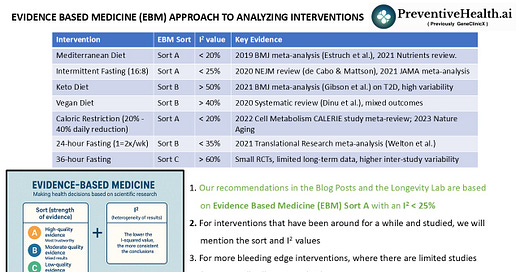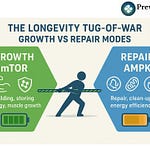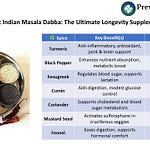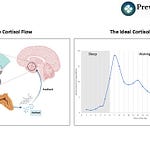“What’s the most effective diet and fasting framework that helps improve both lifespan and healthspan?”
This is a question I get asked a lot, and one that I have spent many years trying to research and experiment with. With so many diets and fasting strategies out there, it’s hard to separate trends from what’s actually backed by science. In today’s post #48, I provide my conclusions and recommendations, along with the clinical evidence supporting them. As always, while each of our bodies react differently and therefore need to be optimized for accordingly, the Evidence Based Medicine (EBM) studies I quote have been done across large populations. For those that want the conclusion without reading further, here they are: a) base your meals on Mediterranean principles, b) eat in a 10 AM–7 PM window, c) add in a once or twice a month 24 hour fast, and d) avoid extremes.
A Quick Note on Evidence Based Medicine (EBM)
Evidence-Based Medicine or EBM—the practice of making health decisions based on the best available scientific research out there. But not all the millions of studies published are equal, so scientists rank them by strength.
Sort A = High-quality evidence (large, consistent clinical trials or meta-analyses). Most trustworthy.
Sort B = Moderate-quality evidence (some good studies, but with mixed results or smaller scale).
Sort C = Low-quality evidence (based on expert opinion, early trials, or animal studies).
There is also a metric called I² (I-squared), which tells us how much the results vary across the numerous studies in a meta-analysis.
I² < 25% means the different studies mostly agree = reliable evidence.
I² > 50% means the different studies had different results = use with caution.
Together, Sort level and I² help us separate what’s truly proven from what’s still speculative. This combination—EBM Sort A with I² < 25%—is what I consider the gold standard. When evidence meets that bar, it makes my short list.
The Clear Winner: Mediterranean Diet
EBM Sort A, I² = 9%
If there’s one eating pattern that consistently wins across cultures and decades of studies, it’s the Mediterranean diet.
In a meta-analysis of over 1.5 million people, those who followed this diet saw a 9% reduction in all-cause mortality. The PREDIMED trial, one of the most robust dietary studies ever conducted, showed a 30% drop in cardiovascular events in participants eating a Mediterranean-style diet enriched with olive oil or nuts.
The key ingredients of a Mediterranean diet include vegetables, legumes, olive oil, fish, nuts, whole grains—and very little sugar or processed food. It’s sustainable, flavorful, and deeply rooted in how some of the world’s healthiest populations eat. For those interested in the Indian version of the classic Mediterranean diet, check out the video interview I did with renowned clinical nutritionist, Dr. Geeta Dharmatti, on the Longevity Lab Community video meet series. If you want to watch snippets from the talk, you can do it here or join the Longevity Lab Community to watch the interview or to review the summary show notes
Coupled with Intermittent Fasting (10 AM to 7 PM Eating Window)
EBM Sort A, I² = 22%
Now let’s talk about when you eat. I personally follow intermittent fasting (IF) with a 10 AM to 7 PM eating window, giving my body ~15 hours of fasting each night. This schedule fits my lifestyle while tapping into powerful metabolic benefits.
In a 2020 meta-analysis with I² = 22%, IF was shown to significantly reduce fasting glucose, insulin, body weight, and inflammation—even without reducing calorie intake. That’s a big deal. IF works not just because you eat less, but because you give your body time to rest, repair, and rebalance.
IF activates AMPK (your cell’s energy regulator) and suppresses mTOR (your body’s growth and aging switch), while enhancing autophagy, the process of cleaning out damaged cellular parts. These pathways are at the core of what we know about aging and healthspan. If these words sound too scientific, don’t worry about it. I’ll be doing a post on explaining these in simple terms because an understanding of these mechanisms help with understanding how our bodies behave during fasting vs. when we are well fed, and both have important roles to play in longevity and healthspan.
And/or Calorie Restriction (Without Malnutrition)
EBM Sort A, I² < 20% (CALERIE Trial)
Calorie restriction (CR)—eating about 10%–15% fewer calories than your body burns—has been shown to extend lifespan in every species studied. In humans, the CALERIE trial found that two years of mild CR improved insulin sensitivity, lowered inflammation, and improved cardiovascular biomarkers—even among healthy, non-obese individuals.
But it comes with caveats: reduced energy, muscle loss, and risk of nutrient deficiencies if you’re not careful. For those of us over 50, it’s essential to prioritize protein and strength training if exploring this strategy. Alternatively, intermittent fasting can deliver many of the same benefits without constant calorie counting.
Diets With Weak or Mixed Evidence
Some popular diets just don’t hold up under rigorous scientific review. I cover them as well so as to provide the rationale behind why they don’t make the cut. Here’s how they rank:
1. Ketogenic Diet
EBM Sort B, I² = 38%
Keto has proven benefits for epilepsy and can improve insulin resistance and weight loss in type 2 diabetes. But for healthy individuals focused on longevity, the evidence is thin. No long-term studies show a reduction in mortality or aging-related decline. High saturated fat intake, low fiber, and nutrient gaps are concerns. In short: therapeutic, but not necessarily longevity-enhancing for most reasonably healthy individuals.
2. Paleo / Carnivore Diets
EBM Sort B, I² > 40%
These diets cut out processed food, which is good—but they also eliminate fiber-rich, longevity-promoting foods like legumes and whole grains. Most studies are short-term and observational. No strong Randomized Controlled Trials or RCTs support these diets for long-term healthspan.
3. Ultra-Processed Vegan Diets
EBM Sort B, I² = 35%–50%
Whole-food plant-based diets are associated with lower mortality and disease risk—when done right. But highly processed vegan diets (mock meats, sugary snacks) don’t offer the same benefits. Quality matters more than the label. If you are on a vegan diet, make sure you keep a close eye on the quality of your carbs.
My Summarized Recommendations:
Here’s what I follow—and recommend—if healthspan and longevity are your goals:
Base your meals on Mediterranean principles: veggies, legumes, olive oil, fish, whole grains, and nuts. I don’t eat much fish but I do have chicken (grilled usually) and some amount of unflavored, unsweetened yogurt.
Eat in a 10 AM–7 PM window to give your body time to repair overnight. While I follow a 15 hour fasting window, even a 12-14 hour window is fine. Make sure it’s practical to fit within your lifestyle, but avoid eating too much after sunset, since our circadian rhythm is a big driver of hormone balance.
Add in a once-a-month or twice-a-month 24 hour fast to trigger deeper autophagy and mitochondrial rejuvenation. It is critical to not overdo it to ensure no muscle mass loss, and to avoid thyroid dysregulation.
Avoid extremes. Diets that exclude major food groups often don’t stand up to long-term evidence.
Final Thought
Longevity is about combining the best of what modern science and ancestral wisdom agree on—and doing it consistently. Eat well. Eat smart. Give your body time to recover. And build strength—this will stand you in good stead for decades to come.
If you haven’t, I hope you’ll join the Longevity Lab community today (it’s FREE), and invite your friends and family too. In addition to providing recommendations on health and wellness products, I interview one domain expert every Thursday at 8:30 am PST / 9 pm IST, and talk about the latest research in preventive health across their various areas of expertise. Recent talks have been with clinicians across the US and India in Endocrinology, Internal Medicine, Orthopedics, Oncology, while upcoming talks are with experts in Metabolic Health, Genetics, Strength Training, GI and Neurology. To join, scan the QR code below or click on the WhatsApp community link here
As always I welcome your thoughts and would love to have you share your experiences in the comments.
Disclaimer: The information provided in this article is for educational and informational purposes only. It is not intended as a substitute for professional medical advice, diagnosis, or treatment. Always seek the advice of your physician or other qualified healthcare providers with any questions you may have regarding a medical condition or wellness program. Reliance on any information provided in this article is solely at your own risk. The author and publisher of this article make no representations or warranties, express or implied, regarding the completeness, accuracy, reliability, suitability, or effectiveness of the information contained herein. The inclusion of specific products, services, or strategies in this article does not imply endorsement or recommendation. The author and publisher disclaim any liability for any adverse effects or consequences resulting from the use or application of the information presented. You are encouraged to consult with a qualified healthcare professional before making any changes to your diet, exercise routine, or lifestyle.














Share this post